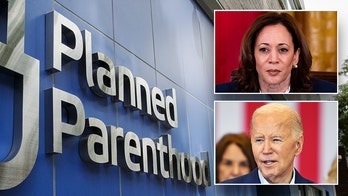Amid all those suggestions that the Tucson massacre had its origins in a climate of hate created by harsh political rhetoric and right-wing talk radio, one voice could be heard making a very specific policy prescription.
Rep. James Clyburn, the South Carolina lawmaker who is the House’s third highest-ranking Democrat, called for the reinstatement of the Fairness Doctrine, which once regulated TV and radio broadcasters under the oversight of the Federal Communications Commission.
"Free speech is as free speech does,” Clyburn told the Charleston Post and Courier last week. “You cannot yell 'fire' in a crowded theater and call it free speech. And some of what I hear, and [what] is being called free speech, is worse than that."
Even though President Obama has flatly rejected the notion that a political motive could be found for the Tucson killings, Clyburn was eager to revive his push for the controversial regulations on broadcasters in the wake of the violence that left six dead and 13 wounded.
The 10-term lawmaker had issued a similar call in the spring of 1995, after the Oklahoma City bombing. At the time, Clyburn had singled out that era’s reigning conservative on talk-radio: G. Gordon Liddy.
Enacted under President Truman in 1949, the original intent of the Fairness Doctrine was to ensure that discussion over the airwaves of controversial issues did not exclude any particular point of view. A Supreme Court ruling in 1969 upheld the constitutionality of the regulation, but chiefly on the grounds that there were so few channels at the time.
“That just simply isn't the case today,” said Harold Furchtgott-Roth, a former FCC commissioner who served on the panel during President Clinton’s second term. “There are unlimited number of channels. There are sources of information that the American public has: on the Internet, through the print media, through other media.”
Under President Reagan, in 1987, the FCC abolished the doctrine, casting its requirement that broadcasters devote equal time to all points of view an unconstitutional abridgement of free speech. (Broadcasters are still required to provide equal opportunity for airtime to political candidates.) The following year, Rush Limbaugh debuted on the nation’s airwaves and conservatives have predominated on talk radio ever since.
The most serious effort at developing a for-profit liberal talk-radio network, Air America, lasted for only six years, its signal going dark almost exactly one year ago. Among its hosts was Al Franken, the former “Saturday Night Live” cast member who is now the junior senator from Minnesota, and a Democrat.
Conservatives view calls for the reinstatement of the Fairness Doctrine as partisan efforts to harness the powers of the federal government to redress an ideological imbalance that they say is driven purely – and properly – by free-market forces.
“The Fairness Doctrine is one of those nicely named things that's just completely wrong,” said Rep. Steve King, R-Iowa, who sits on the House Judiciary Committee. “The American people need to decide who they're going to be listening to, and the federal government can't be deciding what is fair speech, and neither can Mr. Clyburn make that decision.”
Few Democrats, though, have followed Clyburn’s charge. A spokesman for President Obama told FoxNews.com, shortly after Obama’s inauguration, that the president opposes reinstatement of the Fairness Doctrine.
Also opposing the regulation is current FCC Commissioner Mignon Clyburn – the congressman’s daughter. At her confirmation hearing in July 2009, Clyburn told members of the Senate Commerce, Science, and Transportation Committee that the FCC should not be “in the business of censoring speech or content on the basis of political views and opinions.”




